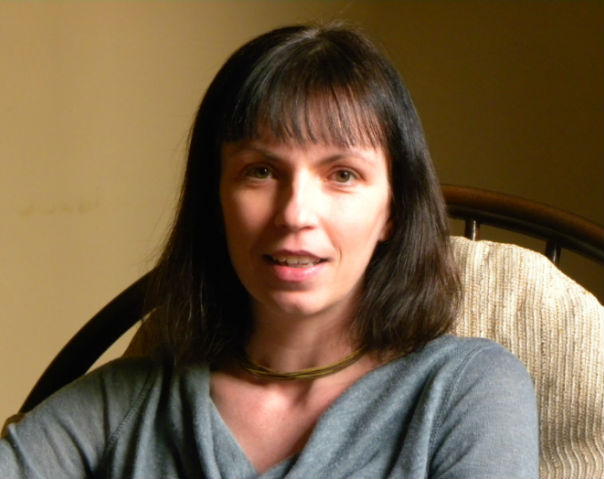
Individual Counseling (Adults)
Short term therapy
‘I offer short-term psychotherapy which is proven to help with: coping with stress and resolving conflicts, feelings of being depressed, anxious, “panicky” or unable to concentrate, bereavement and loss, severe mood changes, difficulties in making or keeping relationships. I help patients to gain an awareness of how their beliefs and actions hurt them and keep them repeating the same unhelpful responses in new situations.
This type of treatment is recommended as an alternative to long term therapy for those wishing to work with defined focus and fulfilling some preconditions. I carefully access all patients during the first sessions and refer all those requiring long term therapy.
I am fluent in English; I lived and worked abroad, in English-speaking environment (UK), for almost fifteen years and I continue using English in my everyday life”.
What can I help with?
There are various problems I can help with, including problems with coping and resolving conflicts, feelings of resentment, disappointment or despair, difficulties in dealing with stress or recovering from stressful situations, feelings of being depressed, anxious, “panicky” or unable to concentrate, severe mood changes, bereavement and loss, difficulties in making or keeping relationships. There is scientific evidence available supporting the use of short-term talking psychotherapy for these types of problems.
My method of work – what can you expect?
The type of therapy I am offering is a short term psychodynamic therapy. The number of therapy sessions people receive varies. Psychotherapy is a personal process and what happens in the therapy will be unique to every patient. Depending on the type of difficulties you have been struggling with, the therapy might last between a few weeks, up to 25 weeks. This type of treatment is especially recommended as an alternative to long term therapy for a particular group of patients: those wishing to work with defined focus and having adequate motivation, those having a history of some good interpersonal relationships and those who are capable of reflecting on themselves in psychological terms. I carefully access all patients during the first few sessions and refer all patients with more long standing problems requiring longer term psychotherapy.
I work with patients to help them understand their emotions, change negative thinking and behaviour patterns. During the sessions I encourage patients to talk as freely as they can and to explore their feelings, experiences, memories, anxieties, fantasies and wishes. I listen carefully to what a patient says and feed back my understanding to the patient. I pay particular attention to the relationship that grows between me and the patient, as this can help us to learn important things about patient’s other past and present relationships.
This type of therapy is based on the assumptions that part of our mind operates outside of our conscious awareness and that early experiences in life shape how, later in life, we relate to others, deal with feelings, important life events and life’s challenges. During the therapy I help patients to gain an awareness of how their beliefs and actions hurt them and keep them repeating the same unhelpful responses in new situations.
In my work I also use elements of mentalization based therapy. This work focuses on patient’s ability to think about thinking. This natural human ability allows us to make sense of our thoughts, beliefs, wishes and feelings and to link these to our actions and behaviours. By increasing mentalization skills people might improve their understanding of other people’s and their own problematic reactions.
My Professional Training and Experience
After graduating from Jagielloninan University with MSc in Psychology, I worked for a number of years in in public sector, including statutory services and third sector organisations. I have experience in both in-patient and out-patient services for people experiencing mental health difficulties both in the UK and Poland:
- Placement at the dr Józef Babiński Specialised Hospital in Cracow
- Occupational Therapy Day Centre (art therapist)
- Trevor Gibbens Unit – Psychiatric Hospital in Maidstone, UK
- Division of Psychiatry, University College London
- MIND UK – group psychotherapy
- Secondary Psychological Therapy Services in Maidstone, UK
In 2017 I started intensive postgraduate training in clinical psychology (Salomons Centre for Applied Psychology) accredited by the British Psychological Society. I was trained in a specialist secondary care, community based clinic specialising in psychodynamic therapy. Currently I am continuing my training in the Psychiatric Clinic, University Hospital of the Jagiellonian University Medical College (Gabinet Psychiatrii Psychodynamicznej Kliniki Psychiatrii Dorosłych Szpitala Uniwersyteckiego i Collegium Medicum Uniwersytetu Jagiellońskiego). The training is accredited by professional bodies, including the Polish Psychiatric Association and the Polish Society for Psychodynamic Psychotherapy.
My Proffessional Ethics
In my professional conduct, I follow ethical standards of professional psychological organizations and attend regular clinical supervision. I belong to the Polish Society for Psychodynamic Psychotherapy and the British Psychological Society.
The Experience of Living Abroad
I am fluent in English; I lived and worked abroad, in English-speaking environment, for almost fifteen years. My postgraduate training was delivered in English and I continue using English in my everyday life.
The experiences of migrants and expats have always been at the centre of my professional interests and formed the basis of my PhD research project.
I have personally experienced some of the difficulties related to migration. During those years I have worked with people from many different backgrounds. I believe that this experience shaped my ability to relate to those who live and work outside of their birth country.
Why try psychotherapy in Krakow in English?
It can be a difficult decision to see a psychologist or psychotherapist from a different country. Many people coming to Krakow for study or work assignments struggle with psychological problems. They often think that it is impossible to get psychotherapy in Krakow in English, or they might be afraid of cultural differences and misunderstandings. These fears can prevent one form finding a psychotherapist in Krakow and getting the necessary psychological help. Sometimes people try to deal with their psychological condition themselves or postpone searching for psychotherapy until they come back to their home country.
Psychotherapy in Krakow in English can be a good alternative. If you consult a qualified psychotherapist in Krakow, you can avoid unnecessary suffering and worsening of your condition. If need be, psychodynamic psychotherapy can be continued after coming back to your home country.
